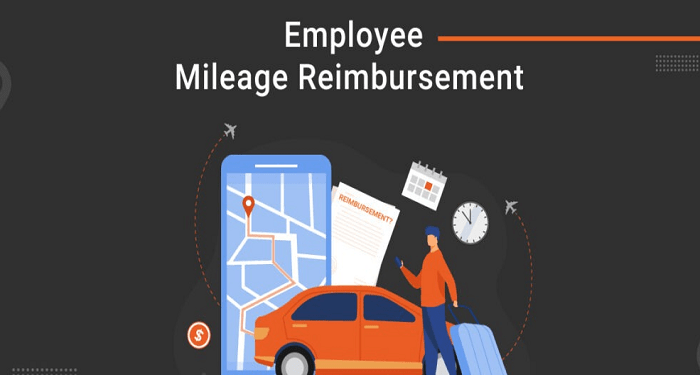In the fast-paced world of corporate dynamics, ensuring fair and efficient reimbursement policies is paramount. A well-structured mileage reimbursement policy aligns with your corporate ethos and is a testament to your commitment to employee well-being and acceptable practices.
As you navigate the complexities of modern business, your dedication to equitable reimbursement speaks volumes about your organizational values. A thoughtfully designed policy streamlines financial processes and fosters a sense of trust and transparency among your workforce.
By prioritizing fair reimbursement, you empower your employees, acknowledging their contributions and enhancing their overall job satisfaction. This commitment to fairness contributes to a positive work culture, creating an environment where employees feel valued and motivated.
Moreover, a well-crafted policy underscores your dedication to compliance and ethical practices, aligning your organization with industry standards. It serves as a protective shield, safeguarding your business from potential legal and ethical pitfalls.
Understanding the Landscape
Before diving into the specifics, let’s understand why a robust travel allowance policy is more than just a procedural formality. In the contemporary work environment characterized by diverse travel needs, your employees’ journeys form a vital thread in the tapestry of your business operations.
Key Components of an Effective Mileage Reimbursement Policy
Navigating the intricate landscape of crafting practical travel expense reimbursement guidelines requires keen attention to key components. You play a pivotal role in mapping out a policy that aligns seamlessly with your corporate journey. Clearly defining reimbursement rates per mile is crucial for your understanding, eliminating ambiguity and fostering trust in the reimbursement process.
Additionally, meticulous documentation of your journeys forms the bedrock of a successful policy, emphasizing your responsibility and accountability in maintaining detailed records. By focusing on these key components, you ensure that your mileage reimbursement policy is not just a set of rules but a dynamic tool tailored to meet your needs on the corporate road.
- Transparent Rate Structure: Crafting a policy that transparently outlines the reimbursement rates is the cornerstone of fairness. Clearly defining the per-mile rate eliminates ambiguity and instills confidence in your workforce. Remember, clarity breeds trust.
The travel allowance policy should be a document an employee can easily decipher without decoding manuals. This simplicity ensures that the process is perceived as straightforward and equitable.
A common mistake is adopting a one-size-fits-all approach. Tailoring reimbursement rates based on the purpose of travel and the mode of transportation used brings nuance to your policy, reflecting an understanding of diverse employee needs. - Documentation Protocols: Beyond the rates, meticulous documentation is the bedrock of practical corporate travel policy and travel expense reimbursement guidelines. Encourage employees to maintain detailed records of their journeys, fostering a culture of responsibility and accountability.
Highlight the significance of accurate mileage logs, emphasizing that this practice facilitates seamless reimbursement and contributes to the organization’s financial health.
As you contemplate documentation specifics, consider integrating digital tools that streamline the process. Embracing technology enhances accuracy and aligns with the contemporary ethos of efficiency.
- Flexibility in Approaches: Recognizing the diverse nature of corporate travel, a well-crafted policy should exhibit flexibility. While providing a standard framework, leave room for exceptions and special considerations.
Empower your employees with the autonomy to make decisions that align with the unique circumstances of their journeys. This flexibility boosts morale and underscores your commitment to treating employees as individuals, not mere cogs in the corporate machinery.
Best Practices in Policy Implementation
As you implement your mileage reimbursement policy, it’s essential to consider best practices beyond the drafting stage.
- Communication Strategies: A meticulously crafted policy is only effective if communicated clearly. Develop communication strategies that ensure every employee understands the nuances of the reimbursement policy.
Consider hosting workshops or providing informative materials that break down the policy in digestible formats. Clear communication mitigates potential misunderstandings and sets the tone for a collaborative and informed work environment. - Regular Reviews and Updates: The business landscape is dynamic, and so should your travel expense reimbursement guidelines. Schedule regular reviews to assess its effectiveness and relevance in light of evolving business needs and industry standards.
An outdated policy hampers operational efficiency and reflects a need for more adaptability. Stay proactive in updating, ensuring your policy remains a living document that grows with your organization.
Empowering Through Transparent Policies
In the fast-paced world of corporate dynamics, ensuring fair and efficient reimbursement policies is paramount. Well-structured travel expense reimbursement guidelines align with your corporate ethos and testament to your commitment to employee well-being and acceptable practices.
Key Components of an Effective Travel Allowance Policy
- Transparent Rate Structure: Crafting a policy that transparently outlines the reimbursement rates is the cornerstone of fairness. Clearly defining the per-mile rate eliminates ambiguity and instills confidence in your workforce. Remember, clarity breeds trust. The travel expense reimbursement guidelines should be a document an employee can easily decipher without decoding manuals.
This simplicity ensures that the process is perceived as straightforward and equitable. Avoiding a one-size-fits-all approach and tailoring reimbursement rates based on the purpose of travel and the mode of transportation used brings nuance to your policy, reflecting an understanding of diverse employee needs.
- Documentation Protocols: Beyond the rates, meticulous documentation is the bedrock of practical travel expense reimbursement guidelines. Encourage employees to maintain detailed records of their journeys, fostering a culture of responsibility and accountability. Highlight the significance of accurate mileage logs, emphasizing that this practice facilitates seamless reimbursement and contributes to the organization’s financial health.
As you contemplate documentation specifics, consider integrating digital tools that streamline the process. Embracing technology enhances accuracy and aligns with the contemporary ethos of efficiency.
Best Practices for Implementation
As you implement your travel expense reimbursement guidelines, it’s essential to consider best practices beyond the drafting stage.
- Communication Strategies: A meticulously crafted policy is only effective if communicated clearly. Develop communication strategies that ensure every employee understands the nuances of the reimbursement policy. Consider hosting workshops or providing informative materials that break down the policy in digestible formats.
Clear communication mitigates potential misunderstandings and sets the tone for a collaborative and informed work environment.
- Regular Reviews and Updates: The business landscape is dynamic, and so should your travel expense reimbursement guidelines. Schedule regular reviews to assess its effectiveness and relevance in light of evolving business needs and industry standards.
An outdated policy hampers operational efficiency and reflects a need for more adaptability. Stay proactive in updating, ensuring your policy remains a living document that grows with your organization.
Navigating Success with an Effective Mileage Reimbursement Policy
As you formulate an effective corporate travel policy, remember that it’s more than a set of rules; it reflects your organization’s values. A policy crafted with empathy and foresight can catalyze employee satisfaction and operational efficiency. In the realm of corporate travel, where each mile signifies a step toward organizational success, let your policy be the compass that guides your employees with fairness and purpose.
Crafting an effective policy isn’t just a procedural necessity; it’s a strategic investment in your most valuable asset – your people. As you set sail into the vast expanse of corporate travel policies, may your course be marked by fairness, transparency, and a commitment to excellence.











